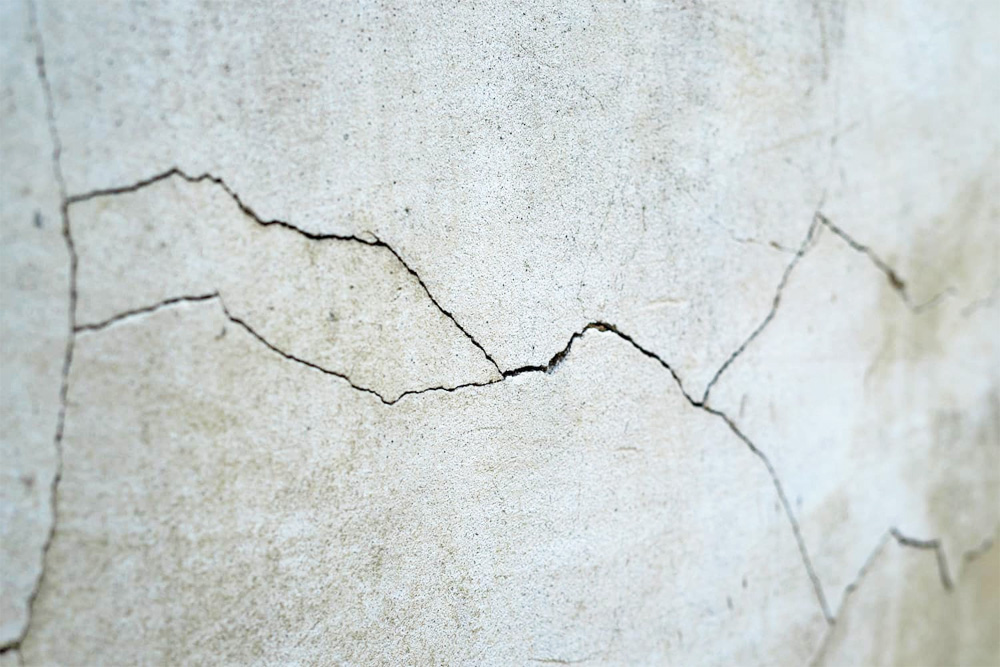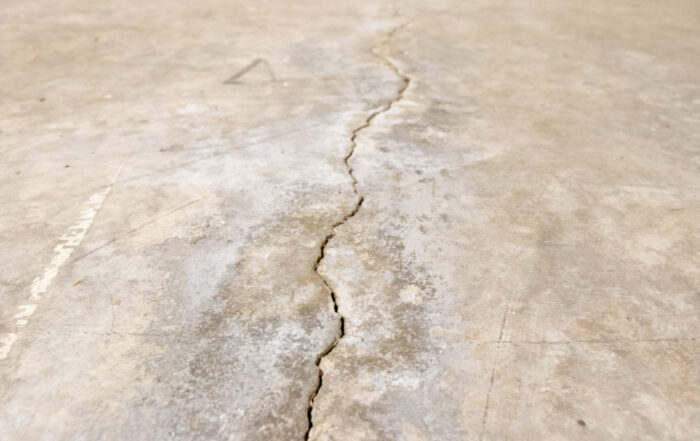Foundation Cracks – When to Worry and What You Can Do About Them

Discovering a crack in your foundation can be unsettling. It raises immediate concerns about the stability of your home and the potential for costly repairs. While some cracks can indicate serious structural issues, not all cracks are dangerous or indicative of foundation damage. Understanding the difference is key to protecting your home and avoiding unnecessary expenses. This guide will help you determine when to worry about cracks in your foundation and what steps to take.
Why Do Foundation Cracks Happen?
Foundation cracks occur for various reasons, but the primary culprits are soil movement and water issues. In states like Texas, where clay-heavy soil is prevalent, these problems are particularly common. Clay soil expands significantly when wet and contracts during dry spells, creating constant pressure on the foundation. This pressure can lead to cracks, some of which may be harmless, while others could signal severe structural damage.
Common causes of foundation cracks include:
- Soil settling: As the soil beneath your home settles, the foundation can shift, leading to cracks.
- Poor drainage: Water pooling near your home’s foundation can weaken the structure over time.
- Seasonal changes: Expanding and contracting soil due to weather fluctuations exerts stress on the foundation.
- Construction flaws: Poorly constructed foundations may crack under minimal pressure.
- Natural disasters: Earthquakes, floods, and extreme weather events can cause immediate and severe damage to foundations.
However, it’s important to remember that homes in the state of Texas are made with shift in mind. It’s similar to how a bridge is made with gaps to accomodate for external pressure: if you build too rigid of a bridge, the extreme conditions of the elements would break it. The same principle applies to our homes: If they are made too rigid, and do not account for the soil movement under the home, you would have a much bigger problem in your hands. Instead, your home is made to accomodate some of the movement, which is why sometimes you will see cracks in your drywall that may not be indicative of foundation damage.
Early Signs of Foundation Issues Inside the Home
There are a few different interior warning signs that may alert you to potential foundation problems. These include:
- Sticking doors and windows: Difficulty opening or closing doors and windows could be an early indicator of shifting in the foundation.
- Cracks around doors or windows: Small cracks around door frames or windows may be a sign that your home is settling unevenly.
- Gaps between walls and floors: Separation between walls, ceilings, and floors may signal significant foundation movement.
- Uneven or bouncy floors: Floors that feel uneven or sag in certain areas could indicate foundation trouble.
If you notice any of these signs, it’s essential to conduct a more thorough inspection to identify any exterior cracks in the foundation.
Foundation Cracks: When to Worry
Not all cracks in your foundation are cause for alarm. Like we discussed, some are natural and relatively harmless, while others demand immediate attention. So, how do you determine which cracks are foundation cracks to be concerned about? Here’s what to look for:
1. Hairline Cracks
- Description: Thin, almost invisible cracks in mortar or concrete.
- Concern Level: Low. These cracks are typically cosmetic and occur as the foundation cures or settles slightly.
- Action: Monitor over time to ensure they don’t widen.
2. Vertical Cracks
- Description: Cracks running up and down the foundation wall.
- Concern Level: Moderate. Often caused by normal settling, but larger vertical cracks (wider than 1/4 inch) can indicate structural issues.
- Action: Seal and monitor for changes. If they widen or leak, consult a professional.
3. Stair-Step Cracks
- Description: Cracks in the mortar joints of brick or block foundations, forming a stair-step pattern.
- Concern Level: High. These often point to uneven settling or moisture issues.
- Action: If these cracks exceed 1/4 inch in width or are accompanied by bulging, contact a foundation specialist immediately.
4. Horizontal Cracks
- Description: Cracks running horizontally along the foundation wall.
- Concern Level: Severe. Horizontal cracks often signal significant structural damage, commonly caused by excessive soil pressure.
- Action: These cracks require immediate professional evaluation and repair to prevent further damage.
5. L-Shaped Cracks
- Description: Found at the corners of the foundation where it slopes.
- Concern Level: Moderate to High. Often caused by shrinkage or pressure at weak points.
- Action: Seal to prevent moisture intrusion and monitor for further movement.
Understanding foundation cracks – when to worry is crucial in determining the next steps. When in doubt, it’s always better to err on the side of caution and seek expert advice.
How to Inspect Your Foundation for Cracks
Conducting regular visual inspections of your foundation can help you catch potential problems early. Here’s how to perform a basic check:
- Walk the perimeter of your home: Look for visible cracks along the foundation walls. Pay attention to the areas near windows and doors.
- Check for straightness: Stand at a corner of your house and look along the length of the wall. Bulging or bowing could indicate structural stress.
- Inspect crawl spaces and basements: Look for signs of moisture, such as standing water or damp soil, which can weaken the foundation or cause heaving.
- Use a tape measure: Measure the width of any cracks. Cracks wider than 1/4 inch typically require professional evaluation.
When to Worry About Cracks in Foundation: Key Indicators
Knowing when to seek professional help is vital. You should be concerned if:
- Cracks are wider than 1/4 inch.
- You notice horizontal or stair-step cracks.
- Cracks that continue to grow over time.
- There is visible bulging or bowing in the foundation walls.
- Interior issues, such as sticking doors or cracks in drywall, accompany foundation cracks.
How Professionals Address Foundation Cracks
When you call in a professional, they will assess the cracks and the surrounding soil conditions to determine the root cause. Their evaluation may include:
- Taking elevations: Elevation changes throughout the home are an indicator of how much foundation damage is present.
- Measuring the cracks: To determine if they are within a normal range or require repair.
- Researching/Testing soil conditions: To check for moisture levels and soil stability.
- Inspecting drainage systems: Ensuring that water is being properly diverted away from your foundation.
Based on their findings, they will recommend a tailored repair plan. This could involve anything from sealing minor cracks to installing piers for more significant structural support.
Conclusion: Protect Your Home from Foundation Damage
Foundation cracks can be intimidating, but not all of them warrant immediate concern. By understanding the types of cracks and knowing when to worry about cracks in foundation, you can take the necessary steps to protect your home. Regular inspections and early intervention are key to avoiding costly repairs.
If you’re unsure about a crack or want a professional evaluation, don’t hesitate to contact a foundation repair company. We’ll provide you with a thorough assessment and peace of mind.



